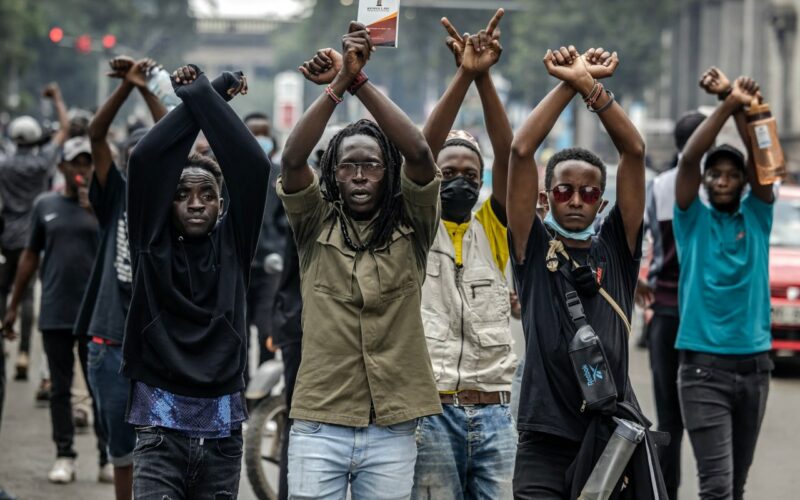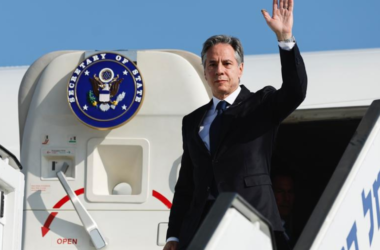Protesters in Kenya are set to hold nationwide demonstrations on Tuesday in opposition to newly introduced tax increases. This burgeoning movement, which began as a youth-driven online campaign, has quickly escalated into a significant challenge for the government.
The protests are a reaction to a proposed finance bill aimed at raising an additional $2.7 billion in taxes to address Kenya’s escalating public debt, which has surged over the past decade. Organizers are also advocating for a general strike in response to the tax measures.
President William Ruto, who secured his election victory nearly two years ago by championing the working poor, now faces the challenge of managing a substantial debt burden. Interest payments on this debt consume 37% of the country’s annual revenue, limiting his ability to fulfill key campaign promises. He is navigating the competing pressures from international lenders such as the International Monetary Fund, who are pressing for deficit reduction, and a populace struggling with rising living costs due to inflation and last year’s tax hikes.
Thousands of demonstrators gathered in Nairobi and more than six other cities over two days last week. Reuters and human rights organizations reported that while the protests in Nairobi were largely peaceful, police frequently deployed tear gas and water cannons. There was one fatality, which the police oversight board attributed to an alleged police shooting. The police spokesperson did not comment on the incident. On Sunday, Ruto acknowledged the protesters’ peaceful approach and indicated that the government is open to dialogue regarding the path forward.
Initially centered on opposition to the finance bill, the protesters’ demands have broadened, with many now calling for President Ruto’s resignation. The protests are distinctive because they are not spearheaded by political parties but rather by a loosely organized, youthful faction of the population mobilized online. This decentralized nature poses a unique challenge for the government, as there is no single leader to negotiate with or appease.
Despite the government’s recent concessions—including proposed amendments to eliminate new taxes on essentials like bread, cooking oil, car ownership, and financial transactions—protesters remain dissatisfied and are demanding the complete withdrawal of the finance bill.
On Tuesday afternoon, lawmakers are set to debate these amendments, which, according to the finance ministry, could create a 200 billion Kenyan shilling ($1.56 billion) shortfall in the 2024/25 budget. This deficit would necessitate either spending cuts or tax increases in other areas.
Fergus Kell, a political analyst at Chatham House, remarked, “Ruto’s alternative is to place greater emphasis on reducing government profligacy—but maintaining a political coalition makes this option less appealing.”








